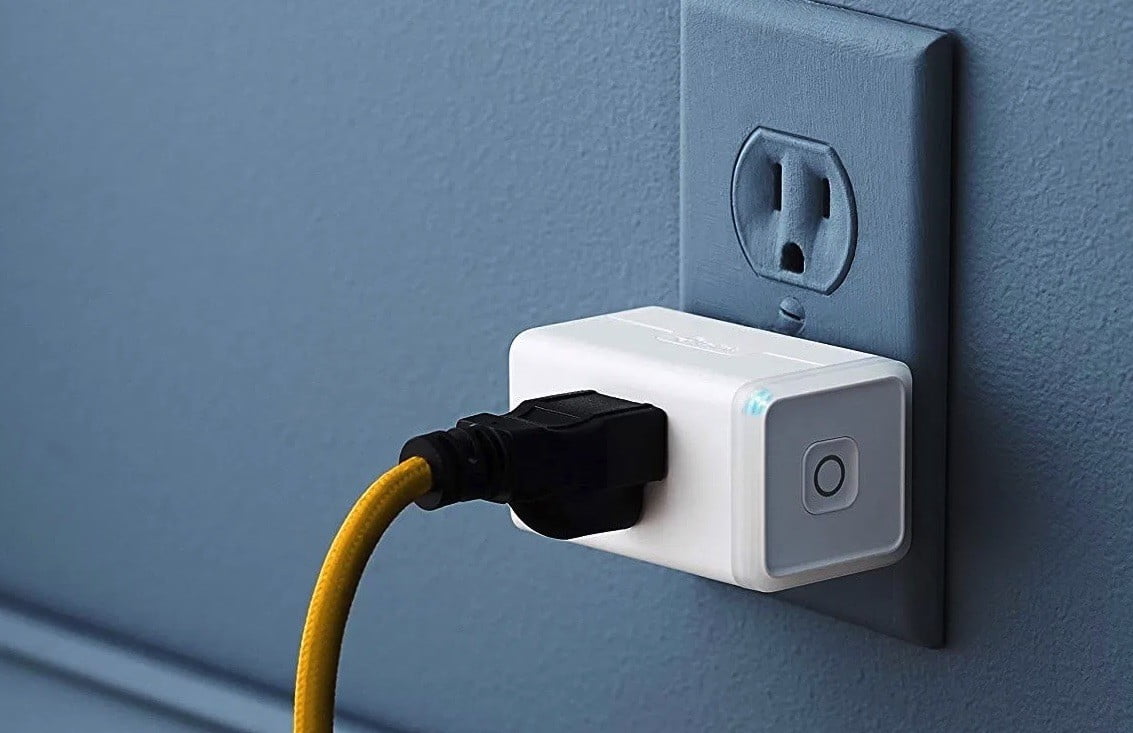Upgrading to a wide range of smart appliances is getting much easier, but for the ones you can’t — or the ones that don’t have smart equivalents — what can you do? There are smart plugs, which provide a level of remote control right at an appliance’s power source.
What are smart plugs, and how do they work?
Smart plugs are an intermediary device between an appliance and a power outlet. Basically, you plug the smart plug into a wall outlet, then plug your device into the smart plug. This allows the smart plug to monitor current and cut or turn on power. Combined with always-on wireless connectivity, you can control these interactions from just about anywhere. Whether you want to check to see how much power your humidifier is using or want to start your coffee machine from the comfort of bed, smart plugs open up all sorts of possibilities.
Exactly how a smart plug communicates will vary by brand. Wi-Fi is common enough, but you’ll also see Bluetooth, Zigbee, and Z-wave used to let smart plugs connect to the internet and your phone. Of course, you’ll need to ensure the router or other required hub is within range of the smart plugs that you’re connecting. Placement can be a challenge in bigger houses, but it’s nothing a range extender can’t fix.
What is a smart plug good for?
Smart plugs give your “dumb” appliances a lot of the features you expect from smart appliances. Besides smartphone control, this includes scheduling; activation via voice assistants like Google, Siri, and Alexa; and triggering automations. Enabling automations allows you to turn on or off appliances when certain criteria are met, often from other smart devices. For example, an automation could include unplugging your toaster when your smartphone location is a certain radius away from home.
Smart plugs can also be especially helpful for outdoor devices that don’t normally have a lot of connectivity or intelligence baked into them. You’ll have to poke around for a set of smart plugs that are designed to weather the elements, but there are plenty of options available for use outside.
Since they’re already paying close attention to current, smart plugs tend to be useful for surge protection as well. This feature can help protect your more valuable devices, though a proper surge protector may be a better fit if that’s a high priority.
Though you may be tempted to opt for smart bulbs or smart switches if you want to add some intelligence to your home lighting, many smart plugs also offer dimming capabilities, which may be useful for lights with few smart bulb equivalents, like Christmas lights. Either way, being able to remotely activate lights does offer a degree of home security by way of being able to turn lights off and on when you’re not home. Onlookers see the illusion that someone is home and moving through the house.
In the end, there are loads of different uses for smart plugs, depending on how they’re set up. If you can dream up a way you’d like them to operate, odds are good that the software and service connections are there to make it happen.
Can smart plugs save you money?
Smart plugs can potentially save you money. By being able to keep tabs on exactly how much power any given appliance is slurping up, you can identify the products in your home that are the biggest problem areas.
Smart plugs can also help save you power by turning off the power supply to devices that use it up even when they’re off. This will ultimately help to cut down on phantom power drain and save you a few bucks on your electrical bill. Over time, smart plugs can pay for themselves, provided you enact sufficient use of their features.
Are smart plugs worth it?
Yes, smart plugs are worth it. Smart plugs aren’t that expensive and can provide a lot of utility. You can snag decent smart plugs for as little as $20. The biggest inconvenience you’re likely to bump into is that smart plugs that are too big. They have to jut out from the outlet a fair bit to accommodate the unit’s housing. Though most smart plugs are designed to ensure you can still access the neighboring outlet, certain models with ground wires may find themselves getting awfully close to a smart plug.
Hopefully, this guide to smart plugs provides enough background on what they are and how they work. You’re likely to find that they’re a simple way to upgrade a wide range of appliances without needing to replace them altogether.
Editors’ Recommendations

